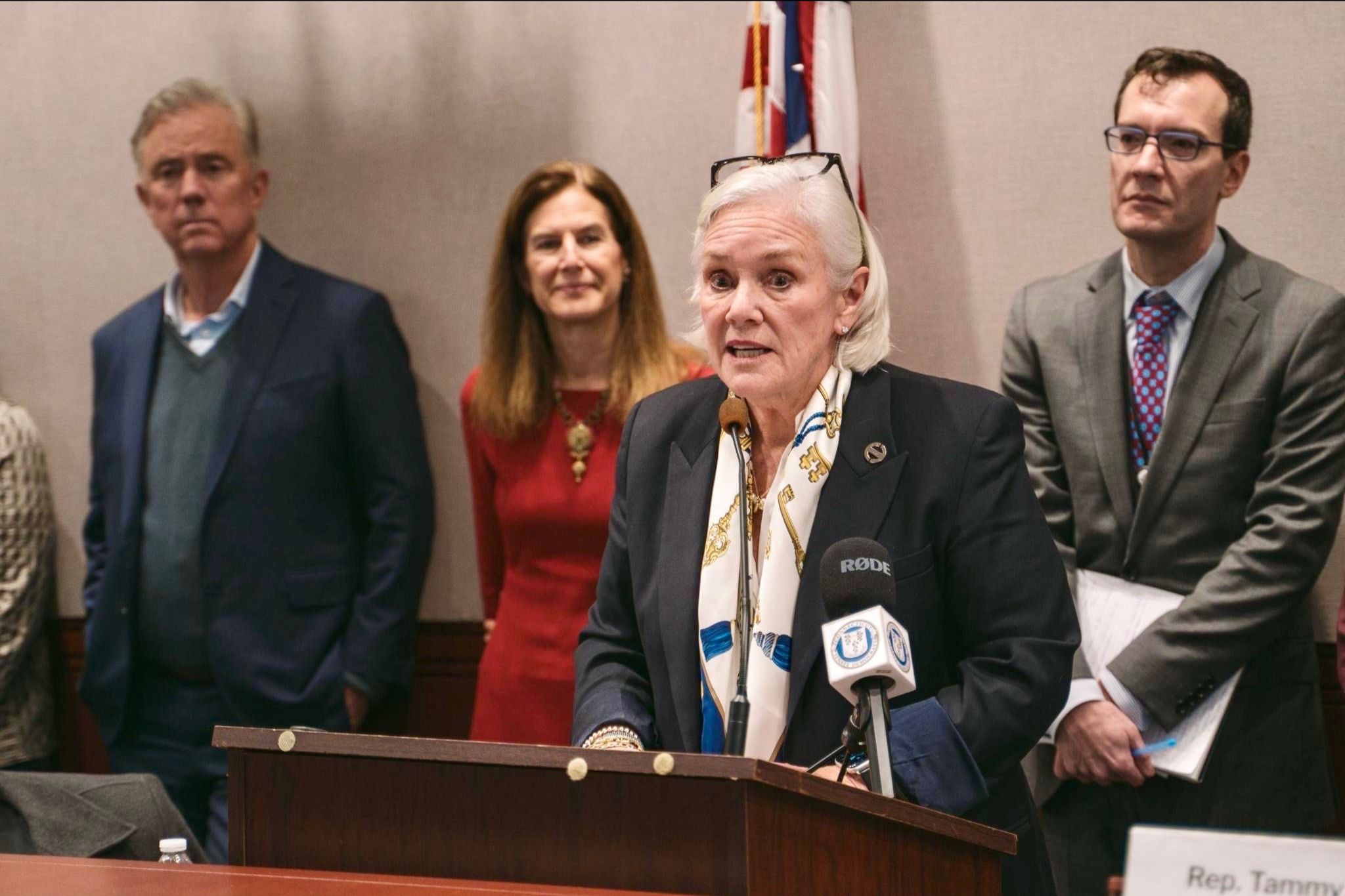SENATOR MAHER, BEHAVIORAL HEALTH COMMITTEE LAUD BILL IMPROVING CARE ACCESS AS GOVERNOR LAMONT SIGNS INTO LAW
Caption: Sen. Maher speaks at the Capitol Wednesday.
Today, State Senator Ceci Maher (D-Wilton) and the Transforming Children’s Behavioral Health Policy and Planning Committee lauded new legislation that will expand access to children’s behavioral health care statewide as Governor Ned Lamont signed it into law in the Legislative Office Building in Hartford.
House Bill 8004, approved by the Senate on November 13 during a special session of the legislature, tasks the Committee, on which Sen. Maher serves as a tri-chair, with conducting a statewide study of existing behavioral health care statewide and future needs for patients and families, with a report due by the end of 2026. That Committee would also add new members with focus on substance use and youth advocacy.
“This bill was designed to work on prevention, early intervention and treatment, and to look at that within the framework of budgets and data,” said Sen. Maher. “When we look at what this represents, it will review crisis centers, increase insurance coverage for young adults and look into new opportunities for success through updated care. This makes sure we can take effective programs further into Connecticut to expand our behavioral health care availability. We’re following through with what Public Act 23-90 was designed to do, and while it will take time, all of our providers statewide will be able to achieve new progress under the advances of this bill.”
“This was a priority bill for Connecticut Democrats because we know the pressures on the children’s mental health field continue to grow,” said Senate President Martin M. Looney (D-New Haven). “We hear all the time it’s becoming a more urgent problem as families struggle to access care and patients suffer due to a gap limiting their care. This bill will give us a better view of what’s best in the services available to state residents and review our current systems to make sure critical services remain accessible.”
Under the new bill, the state will additionally access gaps preventing individuals from getting service, with reviews of hotlines, mobile crisis units, urgent centers and hospitals, all with the intent of meeting rising demand for youth mental health support statewide. State leaders will also review insurance coverage for treatment at urgent crisis centers, making sure they can properly provide aid and support to children and families in need.
A key component involves private-insurance coverage for autism therapies, most importantly increasing their coverage from ending at the age of 21 to the age of 26, when most private insurance lapses for children. This change will provide five additional years of important service and prevent patients from being disconnected from the coverage actively supporting them.
The Department of Social Services will also be directed to evaluate evidence-based in-home psychiatric services under the bill.
Share this page:

